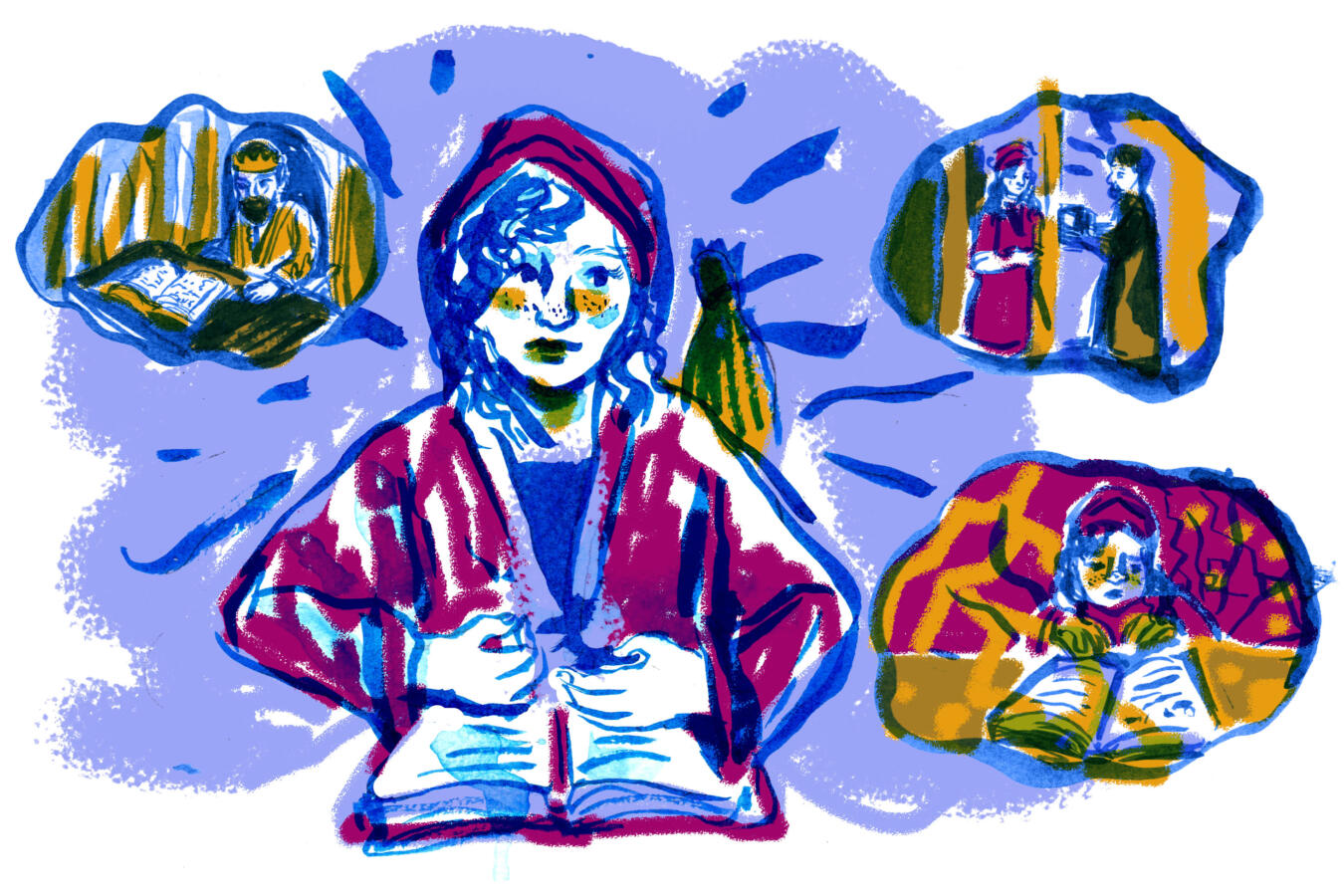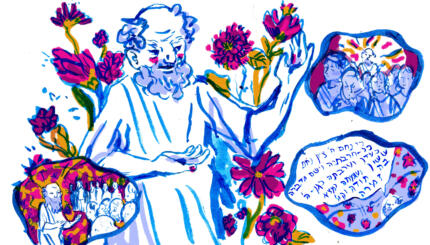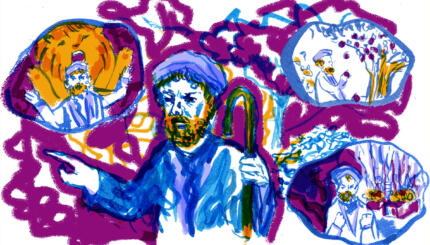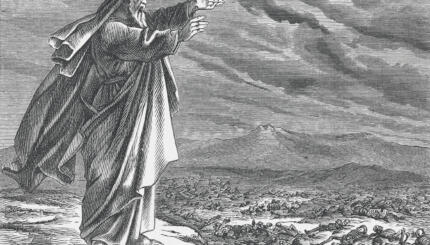King Josiah of Judah had a serious dilemma.
Josiah, who reigned in Jerusalem from 640-609 BCE, deserved his reputation as a pious king who was loyal to the God of his ancestors. Then, one day, his courtiers discovered an ancient-looking “Book of the Teaching” (sefer ha-torah) stashed away in the Temple. This mysterious book was read aloud to the king, and when he heard its words, he was devastated.
According to II Kings 22, the book outlined specific details about Israel’s responsibility in their covenant with God — and it described grave penalties that would befall them if they violated that covenant. Knowing that his royal predecessors, as well as many of his Judean citizens, had broken the terms of the covenant, Josiah was terrified that the warnings of this newly unearthed book might come true. He tore his clothes in a sign of mourning.
But how could the king know whether this “Sefer Ha-Torah” was authentic? He instructed his courtiers to inquire of God to see if its words were valid. They immediately took the book and went to Huldah, a renowned Jerusalem prophet.

Help us keep Jewish knowledge accessible to millions of people around the world.
Your donation to My Jewish Learning fuels endless journeys of Jewish discovery. With your help, My Jewish Learning can continue to provide nonstop opportunities for learning, connection and growth.
Huldah immediately confirmed what they were fearing. First the bad news: the book was indeed authentic, and God’s wrath was going to lash out at the kingdom of Judah. Because the people followed idols, made tributes to other gods and generally behaved despicably, terrible punishments were in store for entire nation. But Huldah also shared some words of consolation, at least for the king: Because he has been humble, “soft-hearted,” and loyal to God, he himself would not see this devastation in his lifetime; he would die in peace (2 Kings 22:15-20).
Who was Huldah? We know frustratingly little about her background. II Kings 22:14 tells us that she was the “wife of Shallum ben Tikvah” (in the parallel passage in II Chronicles 34:22, the husband’s name is “Shallum ben Tokhath”), who was the “keeper of the wardrobe,” although that description, too, is obscure. The Talmud (Megillah 14b) speculates that she was related to the prophet Jeremiah, and the Midrash suggests she was a descendent of Joshua and Rahab (Sifrei Bamidbar 78:1, Ruth Rabbah 2:1), and thus prophetic powers must have run in her family. But we don’t know much else about her.
What we do know is this: When Josiah’s team needed to call upon God, it was Huldah to whom they turned. Modern scholar Robert Alter points out that she verified the newly-discovered book’s legitimacy without even reading it or hearing about its contents — and in this way demonstrated that her prophecy was authentic. In the Bible, there is no dissent that she is a genuine and authoritative prophet.
Huldah takes her place among five women prophets who are singled out by the Bible, alongside Miriam, Deborah, No’adiah (Nehemiah 6:14), and Isaiah’s unnamed wife (Isaiah 8:3). The Bible does not doubt their authenticity nor find their presence remarkable; it seems clear that female as well as male prophets abounded in Israel. Similarly, there were female prophets among Israel’s neighbors in the Ancient Near East.
The Rabbis were curious about where this extraordinary woman came from. They sensed that women’s prayers had a special way of touching God’s attribute of mercy, and suggested that was the reason that Josiah’s minions went to specifically her:
Why would Josiah ignore Jeremiah by reaching out to Huldah instead? In the school of Rabbi Shila they taught: Because women are more compassionate. (Talmud, Megillah 14b)
Surely, the Rabbis figured, there is nothing so persuasive in this world as a mother’s prayer for compassion.
Similarly, the Rabbis speculated about Huldah’s husband, Shallum ben Tikvah. Surely his evocative name — literally, “Peace born of Hope” — must contain a clue. In one midrash, they describe him as a great practitioner of tzedakah, who would sit with jugs of water by the gates of Jerusalem and provide it for all the ravished travelers passing by in the hot Middle Eastern sun. “On account of the Tzedakah that he did, the spirit of prophecy came to rest on his wife” (Pirkei d’Rabbi Eliezer, 33:9).
Most remarkably, the rabbis saw her as an important teacher of Torah in her day. According to Targum Yonatan, an early translation of the Prophets into Aramaic, she regularly taught at the ulpana, or Hebrew school, of her neighborhood. Furthermore, a set of gates in the southern wall of Jerusalem leading to the Temple Mount were known as the “Huldah Gates,” which, although sealed shut for centuries, can still be seen on a tour of Jerusalem today. We may imagine that these were the gates at which Huldah herself once sat, teaching Torah to her disciples.
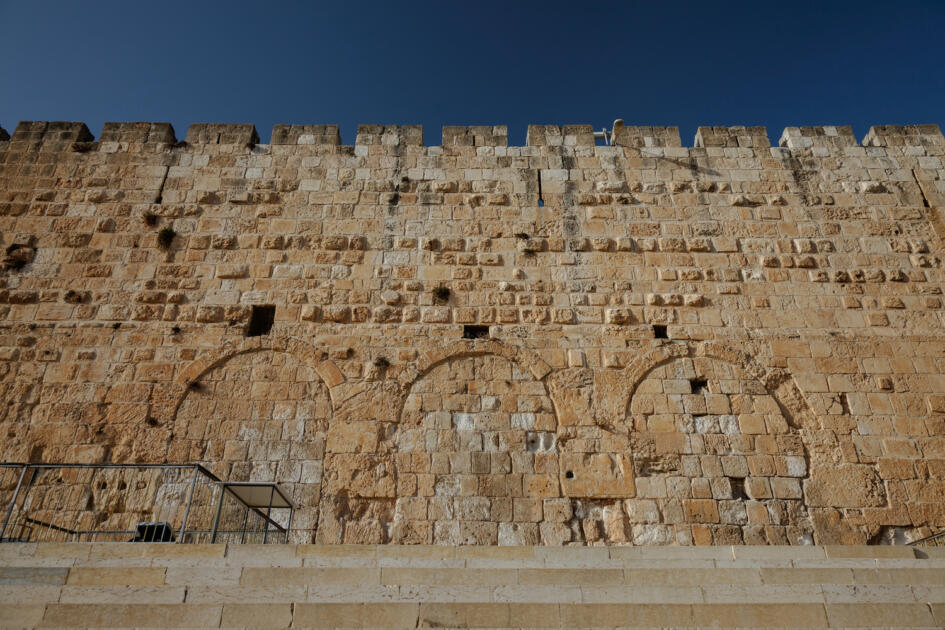
In these ways, she entered the Jewish imagination.
And what about that “Book of Teaching” that Huldah validated? Scholarly consensus, from Church fathers through medieval philosophers to contemporary Bible scholars, identifies it as an early form of the Book of Deuteronomy, the fifth and final book of the Torah. With this book, Josiah brought the people back to their covenantal relationship with God and brought to completion the most sacred of Jewish texts — thanks to the verification provided by Huldah, the prophetess of Jerusalem.
